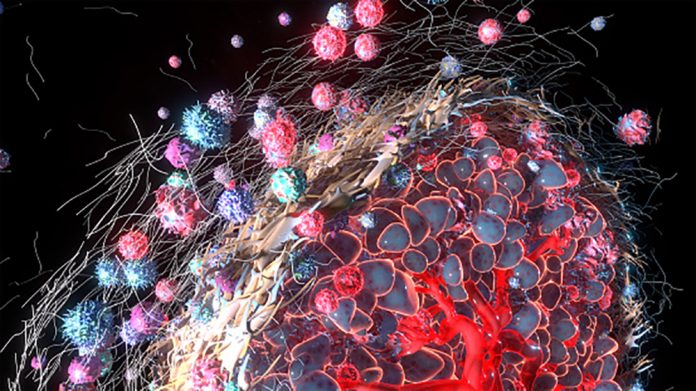
BioNTech is adding ADCs to its portfolio through a deal with China-based Duality Biologics (DualityBio). The two companies will collaborate on development, manufacturing, and commercialization of two antibody drug conjugate (ADC) assets for cancer and autoimmune disease, including Duality’s lead candidate (DB-1303), which is currently in Phase II.
DualityBio will receive $170 million upfront and additional development, regulatory, and commercial milestone payments potentially totaling over $1.5 billion. The agreement is global, but excludes mainland China, Hong Kong Special Administrative Region, and Macau Special Administrative Region.
The agreement came soon after Pfizer acquired ADC developer Seagen in a $43 billion deal that doubled the big Pharma’s oncology pipeline.
“Over the last years, the ADC field has made significant progress, overcoming several limitations and demonstrating its potential as a broadly applicable precision medicine drug class that might be an alternative to standard chemotherapy,” said Prof. Ugur Sahin, MD, chief executive officer and co-founder of BioNTech.
ADCs combine the selectivity of antibodies with the cell-killing properties of chemotherapy or other anti-cancer agents. The first such drug approved was Mylotarg (gemtuzumab ozogamicin) in 2000. And more than a dozen have been approved since then. The market for these drugs is estimated at almost $6 billion and expected to double over the next few years. Currently over 1800 trials are ongoing for more than 100 ADC drug candidates.
DB-1303 is a topoisomerase-1 inhibitor-based ADC directed against Human Epidermal Growth Factor Receptor 2 (HER2), a target overexpressed in a variety of cancers, and which contributes to the aggressive growth and spread of cancer cells.
The DB-1303 program received Fast Track designation from the U.S. FDA and is currently in a Phase II clinical trial (NCT05150691) for HER2-expressing advanced solid tumors. DB-1303 is a third generation ADC built from DualityBio’s proprietary Duality Immune Toxin Antibody Conjugates (DITAC) platform. The company reports that both preclinical data and preliminary clinical data suggest the potential of DB-1303 to address unmet medical needs in various HER2 expressing cancers.
BioNTech will also gain access to a second topoisomerase-1 inhibitor-based ADC candidate, DB-1311, also comprised of a humanized antibody and the company’s proprietary DITAC linker-payload. The company reports that DB-1311 has exhibited potent antitumor activity in a range of tumor models representing multiple cancer types and has been well tolerated in preclinical studies, with a good pharmacokinetics profile.
Sahin said that, “The addition of these two ADCs to our portfolio strengthens our pipeline of immunotherapies and expands our capabilities with the aim to provide therapeutic benefits for patients with a range of solid tumors, along the entire patient journey.”
BioNTech’s current pipeline includes about 15 compounds, including mRNA therapeutics, engineered cell therapies, antibodies, and small molecule immunomodulators.
“We are delighted to partner with BioNTech, a leading company which brings transformational medicine to patients through innovation,” said John Zhu, PhD, Founder and CEO of DualityBio.
“This is a recognition of not only DualityBio’s next-generation ADC platform, but also its internal discovery and development capabilities. With this strategic partnership, we are committed to working together to advance the development of innovative therapies for the benefit of patients worldwide,” he added.













